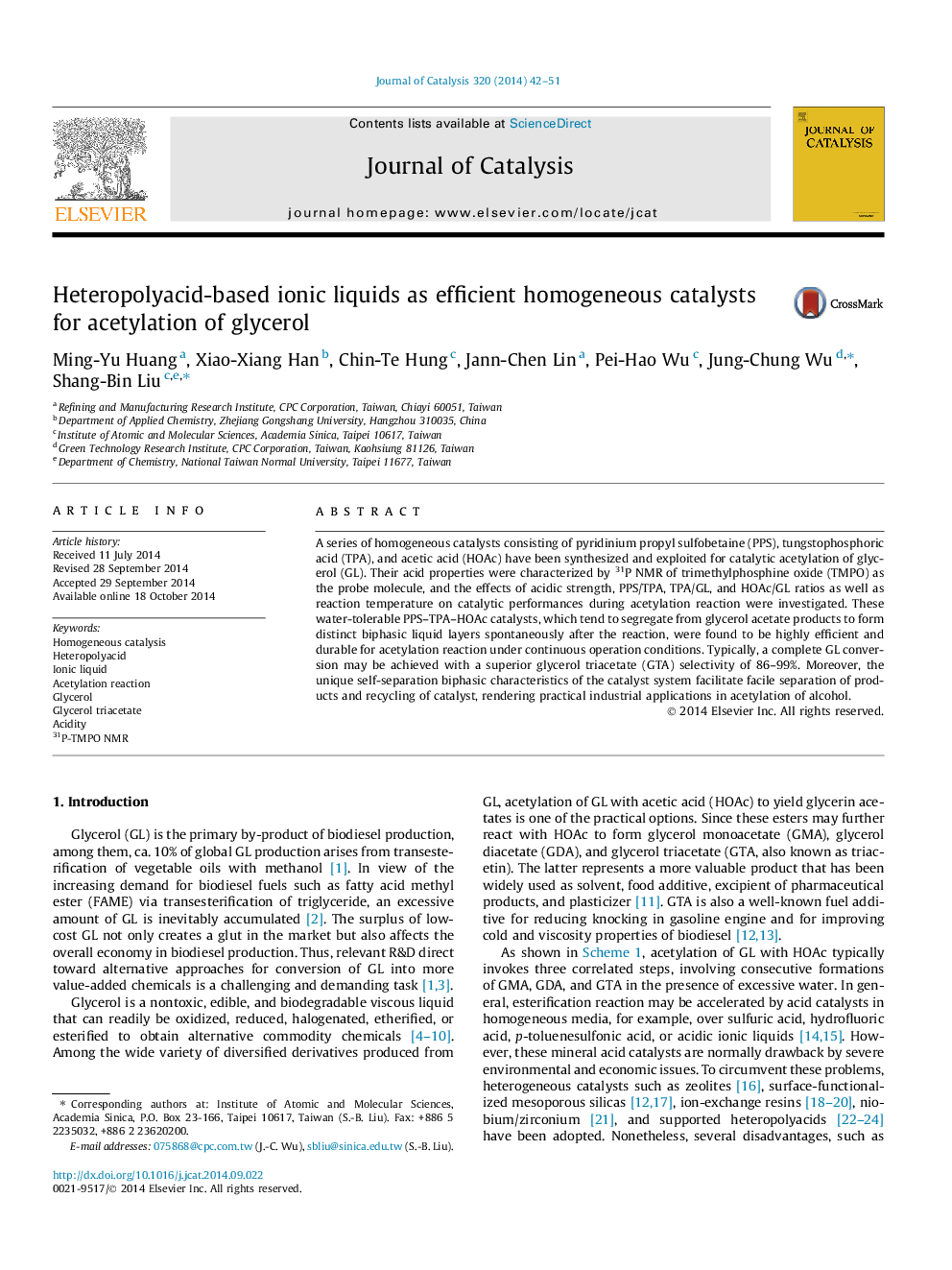| Article ID | Journal | Published Year | Pages | File Type |
|---|---|---|---|---|
| 60940 | Journal of Catalysis | 2014 | 10 Pages |
•Highly acidic heteropolyacid (TPA)-based ionic liquid (IL) biomass catalysts were developed.•Acid properties of these TPA-based IL catalysts were probed by 31P NMR of trimethylphosphine oxide.•These water-tolerable catalysts show excellent activity for homogeneous acetylation of glycerol.•Catalyst system exhibits self-separation property desirable for facile recovery and recycling.•Superior glycerol triacetate yield and durability were observed for these eco-friendly catalysts.
A series of homogeneous catalysts consisting of pyridinium propyl sulfobetaine (PPS), tungstophosphoric acid (TPA), and acetic acid (HOAc) have been synthesized and exploited for catalytic acetylation of glycerol (GL). Their acid properties were characterized by 31P NMR of trimethylphosphine oxide (TMPO) as the probe molecule, and the effects of acidic strength, PPS/TPA, TPA/GL, and HOAc/GL ratios as well as reaction temperature on catalytic performances during acetylation reaction were investigated. These water-tolerable PPS–TPA–HOAc catalysts, which tend to segregate from glycerol acetate products to form distinct biphasic liquid layers spontaneously after the reaction, were found to be highly efficient and durable for acetylation reaction under continuous operation conditions. Typically, a complete GL conversion may be achieved with a superior glycerol triacetate (GTA) selectivity of 86–99%. Moreover, the unique self-separation biphasic characteristics of the catalyst system facilitate facile separation of products and recycling of catalyst, rendering practical industrial applications in acetylation of alcohol.
Graphical abstractFigure optionsDownload full-size imageDownload high-quality image (107 K)Download as PowerPoint slide
